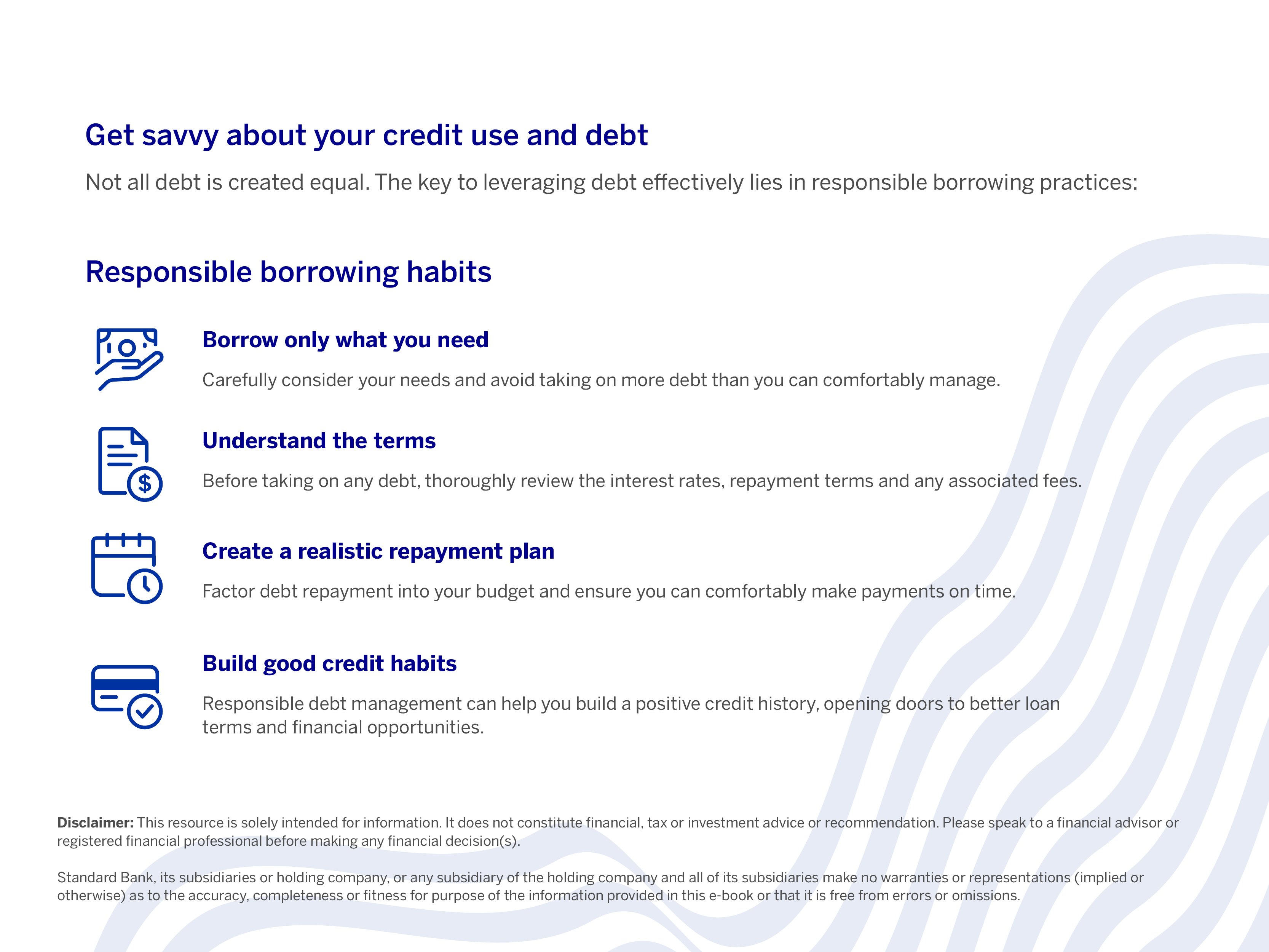
Back to basics: Credit
Credit empowers you to buy what you want when you need it, but it requires careful management to keep your credit record in good standing. We have 5 tips to help you with your credit management.
What is credit?
Credit is when you borrow money to pay for a product or service with the promise of paying back that amount later, giving you access to what you need and the opportunity to postpone payment.
Learn how to use credit responsibly. Download our free e-book.
Download credit e-book
How does it work?
You enter into an agreement where a borrower, such as a bank, lends you a sum of money which you can use to buy or pay for something. You then need to repay that money to your lender, as well as the interest, which is what you’re charged for lending the money.
There are different types of credit, e.g. credit cards, personal loans, home loans and vehicle financing, all with different requirements and conditions but with the same understanding that you’ll pay back the money within a specified time. Essentially, the bank covers your bill at the shop, institution or company, and then you have to pay back the bank with interest.
Managing your credit?
How you manage your credit has both immediate and potentially long-term effects. In the short term, using your credit carelessly can rack up high-interest debt that can be difficult to pay off later.
It also affects your credit score, which can influence your access to credit in the future. Your credit score gives lenders a history of your credit activity and how trustworthy you are with repaying your loans.
Your credit score can affect the following:
- Interest rate on loans
- Favourable terms on credit opportunities
- Better insurance rates
- Skipping utility deposits
- Improving your employability
Unfortunately, not staying on top of your debt can lead to negative consequences. If you lose track of your spending and start missing payments, you’ll be charged fines and higher interest rates. Alternatively, you could be reported as an untrustworthy borrower at the credit bureaus, which could lead to a lower credit score, or an unsuitable borrower in general.
4 Tips on effective credit management
Mastering the art of credit management is essential for fostering financial stability. Use these 4 simple tips to help guide how you use your credit.
- Understand your statement: don’t fear your monthly statements; go through them thoroughly to track how much you’ve spent and borrowed and that you’re still in budget. Having a clear view will also equip you with the knowledge to identify where you should slow down or cut back.
- Don’t borrow more than you need: although you might be tempted to, avoid overspending on credit and ensure that you remain within the boundaries of what you can afford to pay back. Also, resist the urge to spend your entire credit limit as this can become an expensive habit that can cause a lot of financial stress.
- Take advantage of the interest-free period: your Standard Bank Credit Card gives you 55 days interest-free*, giving you the flexibility to pay off your balance without incurring charges.
- Pay on time, every time: remember, consistency is key when it comes to credit. Remove the hassle and worry of keeping up with your payments. Use our Banking App to set up scheduled payments to avoid accidental late payments.

Disclaimer: This article is for information purposes only and does not constitute financial, tax or investment advice. Readers are strongly encouraged to seek financial or legal advice before making any decisions based on the content.
Standard Bank, its subsidiaries or holding company, any subsidiary of the holding company and all of its subsidiaries, make no warranties or representations (implied or expressed) as to the accuracy, completeness, or suitability of the content of this article. The use of the article and any reliance on the content is at the reader’s risk.



